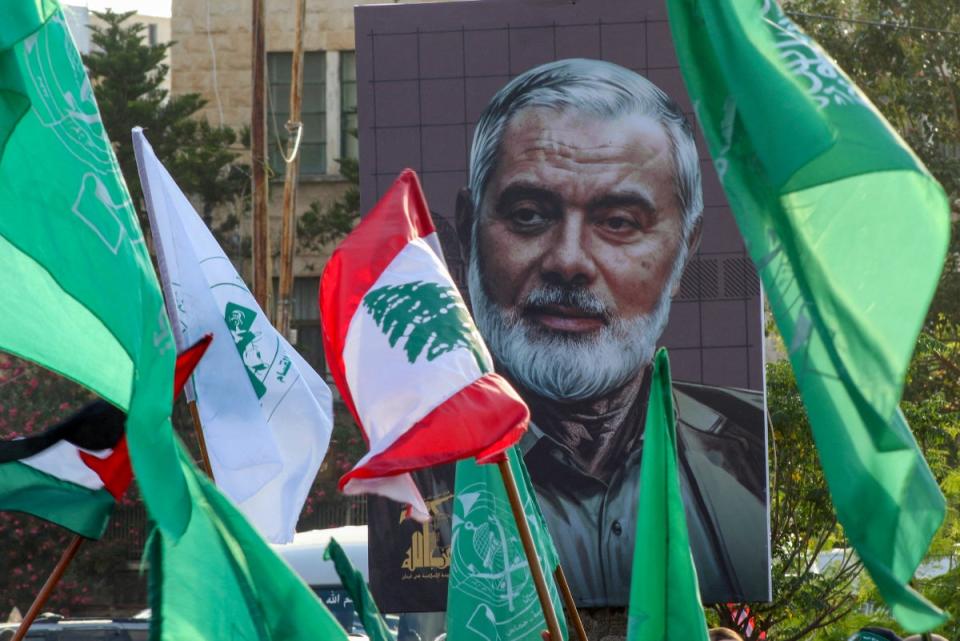Hezbollah has hit northern Israel with a drone attack in response to what it calls “attacks and assassinations” carried out by Israel in southern Lebanon, as fears grow of the potential for all-out war in the Middle East.
It comes as Iran claimed it is not looking to escalate tensions but needs to punish Israel to prevent further instability, following the assassination of a Hamas leader in Tehran.
Foreign ministry spokesperson Nasser Kanaani committed to “punishing the aggressor”, adding that a response to the assassination of Hamas’s political chief, Ismail Haniyeh, was inevitable.
The head of Iran’s Revolutionary Guard (IRGC), General Hossein Salami, reiterated the threat that Israel “will receive punishment in due time”.
Speaking to journalists, the IRGC commander warned that Israel is “digging its own grave” in the way it has conducted its war against Hamas in Gaza, and that it is suspected of carrying out Haniyeh’s killing.
“When they receive a blow, they will notice they are making mistakes. They are making mistakes all the time,” he said.
“They will see the result of their mistake. They will see when, how and where they will get their response.”
In Israel, fire services were working to put out a blaze sparked by the Hezbollah attack in Ayelet HaShahar in Upper Galilee, the Israeli military said, with two soldiers wounded.
The attack did not appear to be part of a more intense retaliation expected in response to the killing of Hezbollah commander Fouad Shukur in Beirut a few hours before the attack targeting Haniyeh. Rather it appeared to be part of the near daily exchange of fire over the border across the past 10 months against the backdrop of the war in Gaza.

Iran’s foreign ministry called in ambassadors and heads of missions residing in Tehran for a meeting with acting foreign minister Ali Bagheri Kani on Monday to reiterate Iran’s will to respond to Israel.
An emergency meeting of the Organisation of Islamic Cooperation was due to be held on Wednesday, at Iran’s request, to discuss the killing of Haniyeh and Iran’s response, Mr Kanaani said.
Haniyeh’s death was one in a series of killings of senior Hamas figures, as the war in Gaza between Hamas and Israel nears its 11th month.
In response to the escalating conflict, the US is deploying additional military resources across the Middle East in an attempt to ease tensions. “The overall goal is to turn the temperature down in the region, deter and defend against those attacks, and avoid regional conflict,” Jonathan Finer, deputy national security adviser at the White House, said on CBS’s Face the Nation programme.
The US and Israel are preparing for every possibility, Mr Finer added. There was a “very close call” in April, Mr Finer said, when Iran launched an attack on Israeli territory with drones and missiles. This followed what Iran described as an Israeli strike on its consulate in Damascus on 1 April, which killed seven officers from the IRGC.
The US wants to be prepared should that situation arise again, Mr Finer added.
Joe Biden will convene his national security team in the situation room on Monday to discuss developments in the region, and will speak to Jordan’s King Abdullah, the White House said.



















